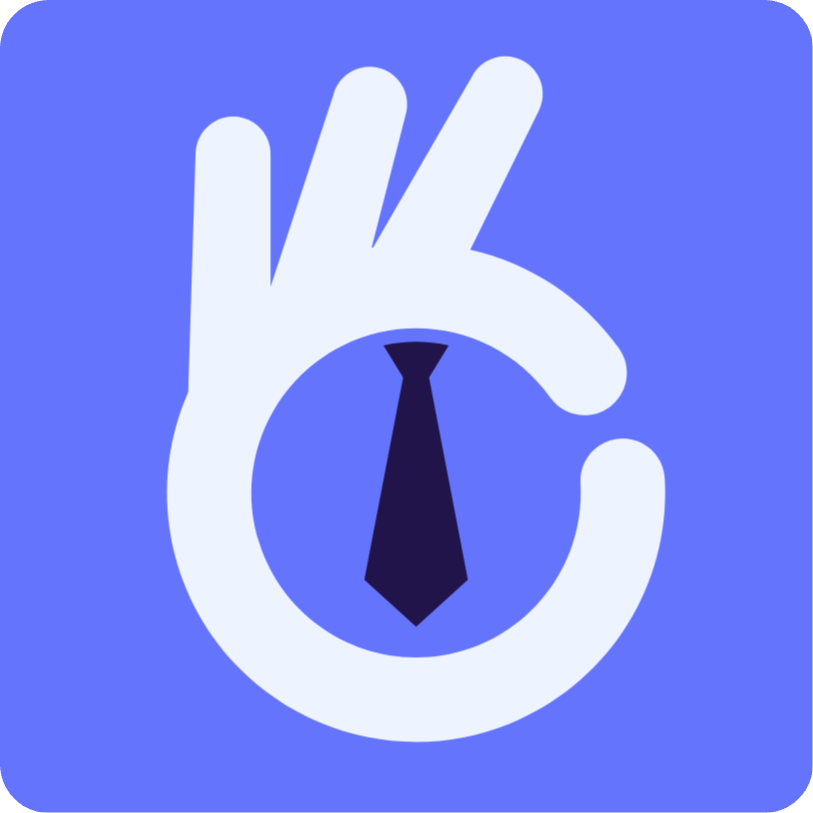Best Resume Keywords to Use in 2025 to Land Interviews
In today's competitive job market, your resume must first pass through sophisticated Applicant Tracking Systems (ATS) before it ever reaches a human recruiter. To secure an interview, your document needs to speak their language, and that language is built on specific, targeted keywords. Simply listing your duties is no longer enough; you must strategically embed the right terms to showcase your skills, quantify your impact, and align perfectly with the job description you're targeting.
But which words truly make a difference? This guide moves beyond generic advice to provide a definitive, categorized list of the most potent resume keywords to use. We will explore everything from powerful action verbs and technical skills to industry-specific terminology and quantifiable achievement markers.
This article is designed to be a practical toolkit. For each category, you will find actionable examples and clear instructions on how to integrate these terms effectively. Our goal is to help you transform your resume from a passive historical document into a dynamic marketing tool that not only beats the ATS but also tells a compelling story of your professional value to hiring managers. By the end, you'll have a clear framework for selecting keywords that get you noticed and open doors.
1. Action Verbs
Action verbs are the foundation of a dynamic and compelling resume. They are powerful words that kickstart your bullet points, transforming passive statements of responsibility into active demonstrations of achievement. Instead of just listing duties, using strong action verbs forces you to frame your experience in terms of what you actually did and accomplished. This simple shift is one of the most effective ways to use resume keywords that grab a recruiter's attention and pass through Applicant Tracking Systems (ATS).

This approach immediately shows a hiring manager your direct contribution and impact, making your qualifications more tangible and impressive.
How to Implement Action Verbs
The key is to replace weak or passive phrases with verbs that convey leadership, initiative, and results. Always start each bullet point with a distinct action verb.
- Weak: Was responsible for managing social media accounts.
- Strong: Orchestrated a comprehensive social media strategy across five platforms, growing audience engagement by 45% in six months.
- Weak: Helped the sales team with lead generation.
- Strong: Generated and qualified over 200 new leads through targeted cold outreach, contributing to a 15% increase in the sales pipeline.
Why This Method is Effective
Choosing the right action verbs does more than just make your resume sound better; it strategically aligns your experience with the job description. Many of the most impactful resume keywords to use are verbs that signal specific, in-demand skills.
Pro-Tip: Create a "master list" of action verbs categorized by skill, such as "Leadership" (e.g., Directed, Mentored, Supervised), "Creativity" (e.g., Designed, Pioneered, Conceptualized), and "Technical" (e.g., Engineered, Programmed, Configured). This makes it easier to select the perfect word for each bullet point.
2. Technical Skills
Technical skills are the hard, quantifiable abilities and tools you possess that are directly relevant to a specific role. These are often the most critical resume keywords to use because Applicant Tracking Systems (ATS) are programmed to scan for them explicitly. Including specific software, programming languages, and technical competencies proves you have the necessary qualifications to perform the job from day one, making your application immediately viable.

Listing these skills accurately and prominently is non-negotiable for any tech, engineering, data, or specialized administrative role.
How to Implement Technical Skills
Create a dedicated "Technical Skills" or "Proficiencies" section on your resume for maximum visibility. Group related skills together to make them easy for a recruiter to scan.
- Weak: I know how to use some marketing software.
- Strong: Marketing Automation: HubSpot, Marketo (Certified), Pardot; Analytics: Google Analytics (GA4), SEMrush, Ahrefs; CRM: Salesforce.
- Weak: Familiar with coding.
- Strong: Programming Languages: Python, JavaScript, SQL; Frameworks/Libraries: React, Node.js, Django; Cloud: AWS (EC2, S3), Docker.
Why This Method is Effective
This method is effective because it directly addresses the baseline requirements of a job description. The ATS flags your resume as a match, and the hiring manager can quickly verify you have the right technical foundation.
Pro-Tip: Mirror the exact terminology from the job posting. If the company lists "JavaScript," use that term instead of its abbreviation "JS." Also, consider including both the acronym and the full name (e.g., "Customer Relationship Management (CRM)") to cover all search variations.
You can streamline this process with tools like the Eztrackr resume builder, which helps you organize your technical skills for optimal ATS compatibility and readability.
3. Industry-Specific Terminology
Speaking the language of your target industry is crucial for demonstrating your expertise and cultural fit. Industry-specific terminology includes the specialized vocabulary, acronyms, and concepts that are standard practice within a particular field. Using these terms correctly shows recruiters that you are not just qualified on paper but are an insider who understands the nuances of their world. These are some of the most powerful resume keywords to use because they act as a direct signal of your relevant experience to both ATS and human reviewers.

Integrating these keywords proves you can "walk the walk" and will require less ramp-up time, making you a more attractive candidate.
How to Implement Industry-Specific Terminology
Weave these terms naturally into your bullet points where they can highlight your skills and accomplishments. The goal is to show proficiency, not to stuff your resume with jargon.
- Healthcare: Instead of saying "Followed patient privacy rules," write "Ensured strict HIPAA compliance while managing patient data in EMR systems."
- Finance: Rather than "Prepared financial reports," use "Reconciled accounts and prepared statements in accordance with GAAP and SOX compliance."
- Tech: Instead of "Worked on a fast-paced team," specify "Collaborated within an Agile framework, participating in daily Scrum meetings and contributing to the DevOps pipeline."
Why This Method is Effective
Using industry-specific language is a shortcut to establishing credibility. It immediately aligns your resume with the specific requirements and environment of the job you're targeting. When a hiring manager sees familiar, relevant terminology, it builds immediate confidence in your abilities.
Pro-Tip: Carefully study the job description for your target role. Note the specific tools, methodologies, and standards they mention. Mirroring this language in your resume is an effective strategy to optimize for both ATS and the hiring manager’s review.
4. Soft Skills
Soft skills are the interpersonal and behavioral attributes that dictate how you work with others and navigate your professional environment. While hard skills demonstrate what you can do, soft skills show how you do it, signaling your ability to collaborate, communicate, and adapt. Employers are placing a huge emphasis on these qualities because they are key indicators of a candidate's potential to integrate into a team and contribute positively to the company culture. Including these resume keywords to use is crucial for showing you're a well-rounded candidate.

Weaving these skills into your experience section, rather than just listing them, provides concrete proof of your competencies and sets you apart from candidates who only focus on technical abilities.
How to Implement Soft Skills
The most effective way to showcase soft skills is by embedding them within your achievement-oriented bullet points. Don't just list "teamwork"; describe a situation where your collaborative efforts led to a measurable success.
- Weak: Good at communication and teamwork.
- Strong: Facilitated cross-functional collaboration between marketing and engineering teams, leading to a 30% faster project completion cycle.
- Weak: Mentored junior employees.
- Strong: Mentored five junior team members in project management best practices, with four subsequently receiving promotions within 18 months.
Why This Method is Effective
Demonstrating soft skills with evidence proves your value beyond technical qualifications. ATS and recruiters scan for keywords related to collaboration, leadership, problem-solving, and communication. By framing your accomplishments around these skills, you directly address what hiring managers are looking for in top-tier candidates who can handle complex workplace dynamics.
Pro-Tip: Analyze the job description and the company's "About Us" page for cultural keywords (e.g., "collaborative," "innovative," "client-focused"). Mirror this language in your resume to show you are an excellent cultural fit from the outset.
5. Job Title Variations
Companies don't use a universal dictionary for job titles, which means the "Marketing Manager" role at one company might be called a "Brand Lead" at another. Using job title variations is a strategic way to align your resume with the specific language of your target company. Including these variations is a powerful method to ensure your resume keywords to use match the exact terms a recruiter or Applicant Tracking System (ATS) is searching for, preventing you from being overlooked due to a simple difference in terminology.
This approach ensures your experience is immediately recognized as relevant, bridging the gap between your previous title and the one you're applying for.
How to Implement Job Title Variations
The goal is to reflect the language used in the job description without misrepresenting your past roles. You can list variations in your headline or summary, or slightly adjust your official title to better match the application.
- Original Title: Software Engineer
- Targeted Variations: Could be presented as "Software Engineer / Developer" or adjusted to "Software Developer" if that term is used exclusively in the job posting.
- Original Title: Business Analyst
- Targeted Variations: Can be listed as "Business Analyst (Systems & Data)" or framed as "Systems Analyst" if the role heavily emphasizes system-level responsibilities.
Why This Method is Effective
This keyword strategy directly addresses the inconsistencies in corporate jargon and naming conventions. By mirroring the employer's terminology, you make it easier for both automated systems and human reviewers to confirm you are a strong match for the position.
Pro-Tip: Scrutinize the job description and the company's career page to identify their preferred titles. If you held a role with broad responsibilities, like "Marketing Coordinator," you can tailor your resume headline to "Digital Marketing & SEO Specialist" for a relevant application, provided your bullet points strongly support those skills.
6. Quantifiable Achievements
While action verbs set the stage, quantifiable achievements deliver the impactful performance. These are the specific numbers, percentages, and metrics that provide concrete proof of your contributions. Including these figures transforms your responsibilities into tangible results, showing recruiters the direct value you can bring. These metrics are some of the most powerful resume keywords to use because they offer undeniable evidence of your capabilities and are highly valued by both hiring managers and Applicant Tracking Systems (ATS).
This data-driven approach moves your resume from a list of duties to a portfolio of successes, making your professional impact clear and memorable.
How to Implement Quantifiable Achievements
The goal is to attach a specific metric to every relevant accomplishment. Dig into your past performance to find numbers that highlight your impact.
- Weak: Improved sales revenue.
- Strong: Increased annual sales revenue by 18%, generating an additional $2M in new business.
- Weak: Was in charge of a departmental budget.
- Strong: Managed an annual departmental budget of $500K, reallocating resources to reduce operational costs by 12% without sacrificing output.
Why This Method is Effective
Numbers cut through the noise and provide a universal language of success. When a recruiter sees a percentage increase or a dollar amount saved, they immediately understand the scale of your achievement. This is crucial for demonstrating your value and aligning with the company's goals, which are almost always measured by metrics. Verifying that your resume is optimized for these numerical keywords is key. For more on this, you can learn more about how a resume ATS checker evaluates your document on eztrackr.app.
Pro-Tip: Don't just focus on revenue. Quantify anything you can: time saved (e.g., "Reduced processing time by 40%"), team size (e.g., "Led a team of 12"), project scope (e.g., "Oversaw a 3-phase project with 25+ stakeholders"), or customer satisfaction improvements (e.g., "Boosted NPS score by 15 points").
7. Company Names and Brands
Beyond skills and actions, the names of well-known companies, clients, or partners you've worked with are powerful resume keywords to use. Mentioning reputable brands provides immediate context and credibility to your experience. These names act as powerful signifiers of the scale, industry, and quality of work you've been exposed to, instantly telling a recruiter you can operate at a certain level.
This strategy works because hiring managers recognize industry leaders and associate them with high standards. If you’ve worked with or for a company they respect, it builds instant trust and makes your resume stand out from a stack of applications with less recognizable experience.
How to Implement Company Names and Brands
Integrate recognizable names directly into your bullet points to add weight to your accomplishments. The goal is to show how you delivered value to or in collaboration with these notable organizations.
- Vague: Led a cloud migration project for a major tech client.
- Specific: Architected and executed a full-scale cloud migration to Microsoft Azure for a Fortune 500 financial firm, reducing operational costs by 22%.
- Vague: Worked on a collaborative design project.
- Specific: Collaborated with the Apple product design team to develop user interface prototypes for a new mobile application, leading to a 30% improvement in user task completion rates.
Why This Method is Effective
Using brand names is a form of professional name-dropping that works. It leverages the established reputation of other companies to boost your own. This tactic is particularly effective for consulting, agency, or B2B roles where client success is a primary measure of performance. It's a quick way to demonstrate the caliber of your professional network and experience.
Pro-Tip: Always be mindful of non-disclosure agreements (NDAs) or confidentiality clauses. If you cannot name a client, describe them in a way that still conveys prestige, such as "a leading global social media platform" or "a top-three automotive manufacturer." Connecting with contacts from these companies can also be a powerful networking strategy. Learn more about effective job search networking to leverage these connections.
8. Certifications and Credentials
Including specific certifications and credentials is a non-negotiable strategy for proving your qualifications in many fields. These are formal recognitions of your skills, often validated by a third-party organization, that act as powerful proof of your expertise. For roles where specific qualifications are mandatory, such as in finance, IT, or project management, these are some of the most critical resume keywords to use to get past initial screening and impress hiring managers.
These keywords immediately signal that you meet the baseline requirements for a position. They demonstrate a commitment to your professional development and show that you have invested in mastering specialized knowledge.
How to Implement Certifications and Credentials
The best practice is to list your most relevant certifications in a dedicated section on your resume. You can also strategically mention the most important one in your professional summary.
- Vague: Familiar with project management principles.
- Specific: PMP Certified Project Manager with a proven record of delivering complex projects under budget and ahead of schedule.
- Vague: Knowledge of accounting standards.
- Specific: Active Certified Public Accountant (CPA) with 5+ years of experience in SEC reporting and internal controls.
Why This Method is Effective
Listing certifications is a direct and efficient way to match the requirements listed in a job description. Applicant Tracking Systems are often programmed to scan for the exact acronyms or full names of these credentials, such as "AWS Certified," "CPA," or "Six Sigma." Failing to include these exact resume keywords could get your application automatically filtered out, even if you are highly qualified.
Pro-Tip: Always include the full name of the certification as well as its common acronym (e.g., Project Management Professional (PMP)). List the issuing body and the date of certification. If a credential is in progress, you can list it with an "Expected" completion date.
9. Problem-Solving Keywords
Every employer wants to hire people who can fix things, improve processes, and overcome challenges. Problem-solving keywords are terms that explicitly demonstrate your ability to identify issues, analyze situations, and implement effective solutions. They go beyond listing duties and prove you are a proactive contributor who adds tangible value. Including these resume keywords to use is crucial because they showcase your critical thinking and resourcefulness, traits universally prized in any role or industry.
These keywords signal to both ATS and human recruiters that you don't just follow instructions; you actively enhance your work environment.
How to Implement Problem-Solving Keywords
The goal is to frame your accomplishments as solutions to specific problems. Instead of vague statements, clearly articulate the challenge, your action, and the positive result.
- Weak: Handled customer complaints.
- Strong: Resolved an average of 25 escalated customer inquiries per week, developing a new troubleshooting script that reduced call resolution time by 30%.
- Weak: Was in charge of the department budget.
- Strong: Identified a $50K budgetary discrepancy and remediated the accounting error, preventing potential year-end deficits.
Why This Method is Effective
Using problem-solving keywords directly answers the unasked question from hiring managers: "How can this candidate make our organization better?" These terms prove your value by showing a history of making measurable improvements. They are some of the most powerful resume keywords to use because they align your past successes with a company's future needs for efficiency, growth, and stability.
Pro-Tip: Before writing, list the top 3-5 major challenges you tackled in each of your previous roles. Then, build bullet points around them using strong problem-solving verbs like Diagnosed, Restructured, Streamlined, and Resolved, always quantifying the outcome.
10. Leadership and Management Terms
Demonstrating your ability to lead teams, manage projects, and drive organizational success is critical, especially for senior roles or positions with growth potential. Leadership and management terms are powerful resume keywords to use because they signal to hiring managers that you can take ownership, guide others, and deliver results. These keywords move beyond simple task completion and highlight your strategic value to a company.
Including these terms shows you can handle responsibility and contribute on a larger scale. They are essential for anyone aiming for management, supervisory, or project lead positions, proving you have the skills to steer a team toward its goals.
How to Implement Leadership and Management Terms
Focus on showcasing the scope and impact of your leadership. Instead of just stating you were a manager, quantify the results of your guidance.
- Vague: Led the marketing team.
- Strong: Directed a cross-functional team of 12 marketing and sales professionals, launching a product that captured a 10% market share within one year.
- Vague: Was in charge of training new hires.
- Strong: Mentored and coached 8 junior developers, resulting in a 30% improvement in team productivity and 100% employee retention over two years.
Why This Method is Effective
Using specific leadership keywords provides concrete proof of your capabilities. Terms like "Oversaw," "Delegated," "Coordinated," and "Streamlined" are parsed favorably by Applicant Tracking Systems and catch the eye of recruiters looking for candidates who can make a tangible impact. They validate both formal and informal leadership experiences, making you a more versatile and attractive candidate.
Pro-Tip: Don't just list leadership verbs. Quantify your achievements by including the size of the team you led, the budget you managed, or the specific growth metrics you influenced. Proving your leadership abilities on paper is a great way to prepare for your interview. You can learn more about how to ace your job interview on eztrackr.app.
Top 10 Resume Keywords Comparison Guide
| Item | Implementation Complexity 🔄 | Resource Requirements ⚡ | Expected Outcomes 📊 | Ideal Use Cases 💡 | Key Advantages ⭐ |
|---|---|---|---|---|---|
| Action Verbs | Low – Simple language changes | Minimal – Writing skills needed | Strong impact, measurable achievements | Universal, esp. sales, management, leadership | Grabs attention, shows initiative, ATS-friendly |
| Technical Skills | Medium – Requires up-to-date technical knowledge | Moderate – Keeping skills current | Concrete capability proof, ATS passing | IT, engineering, marketing, software-related roles | Validates expertise, easy to verify |
| Industry-Specific Terminology | Medium – Research and correct application | Moderate – Requires industry familiarity | Demonstrates deep domain knowledge | Specialized fields like healthcare, finance, technology | Displays expertise and cultural fit |
| Soft Skills | Low – Behavioral descriptions | Low – Reflective insight required | Shows adaptability and teamwork | Management, sales, customer service, team-based roles | Highly valued, transferable, emotional intelligence |
| Job Title Variations | Low – Selecting relevant titles | Minimal – Research on company vocab | Better ATS matching, versatility demonstration | All industries, esp. tech and marketing | Improves ATS hits, shows role progression |
| Quantifiable Achievements | Medium – Needs accurate data | Medium – Data collection and validation | Concrete proof of success | Sales, marketing, finance, operations | Memorable proof, shows ROI |
| Company Names and Brands | Low – Include notable names carefully | Minimal – Must respect confidentiality | Adds credibility and recognition | Consulting, sales, client-facing roles | Boosts credibility, attracts recruiter attention |
| Certifications and Credentials | Medium – Must maintain and list properly | Moderate – Cost and time for certifications | Validates expertise and compliance | Regulated industries: finance, healthcare, IT | Objective validation, meets job requirements |
| Problem-Solving Keywords | Low to Medium – Needs examples to avoid vagueness | Low – Use in descriptions | Highlights critical thinking and innovation | Consulting, engineering, operations, management | Shows strategic thinking and value creation |
| Leadership and Management Terms | Medium – Must be supported by concrete examples | Low to Medium – Requires leadership experience | Demonstrates management ability and career growth | Management positions across industries | Essential for advancement, shows people skills |
Putting Keywords to Work: Your Next Steps to a Better Resume
You now have a comprehensive understanding of the different types of resume keywords to use to build a document that commands attention. We've moved beyond simple lists of words, exploring the strategic importance of action verbs, the necessity of industry-specific terminology, and the power of quantifiable achievements. The key takeaway is that a strong resume isn’t just a historical record; it's a strategic marketing document designed to align with the specific needs of an employer and the automated systems they use.
Remember, the goal is not to stuff your resume with every keyword imaginable. Instead, the art lies in selection and integration. By carefully weaving these terms into the narrative of your experience, you transform a generic document into a compelling story of your professional value. Each bullet point becomes an opportunity to demonstrate impact, prove competence, and speak the language of the hiring manager.
Your Action Plan for Keyword Mastery
To turn this knowledge into tangible results, you need a clear, actionable plan. Don't let this information remain theoretical. Start implementing these strategies today to see a real difference in your job search.
Here are your immediate next steps:
-
Conduct a Keyword Audit: Review your current resume against the ten categories we discussed. Use a highlighter or a separate document to note which keywords are present and which are missing. Pay special attention to soft skills, leadership terms, and problem-solving language.
-
Analyze Target Job Descriptions: For your next three to five applications, meticulously dissect the job postings. Create a list of the most frequently used nouns, verbs, and technical terms. How many of these critical resume keywords to use are currently in your resume? This analysis is your roadmap for customization.
-
Integrate and Quantify: Don't just add a keyword; build a story around it. Instead of saying "Managed a team," use a powerful keyword combination: "Orchestrated a cross-functional team of 8 to launch a new product line, increasing market share by 15% in the first quarter." This method combines an action verb, a leadership term, and a quantifiable achievement.
-
Seek Automated Feedback: In today's competitive market, manual checks can only take you so far. Applicant Tracking Systems (ATS) are your first gatekeepers, and understanding how they "read" your resume is crucial. Using a tool that provides an ATS compatibility score can give you an undeniable edge, highlighting keyword gaps you might have missed.
By consistently applying these steps, you shift from a passive applicant to a strategic job seeker. You'll not only get past the initial screening but also provide hiring managers with the precise evidence they need to move you to the interview stage. Mastering the language of your industry is the single most effective way to ensure your qualifications are seen and valued.
Ready to stop guessing and start getting noticed? Take the next step in optimizing your job search with Eztrackr. Use its powerful Skill-Match Analyzer to instantly scan job descriptions and your resume, pinpointing the exact keywords you're missing for every application. Sign up for free and build a resume that beats the bots and impresses hiring managers at Eztrackr.
 Interview Sidekick
Interview Sidekick